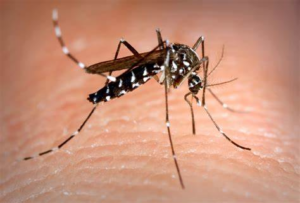What happens to your body when you stop eating sugar?
4 min read
In modern diet culture, sugar has been cast as the supervillain. We’re told that it’s as addictive as a Class A drug and just as deadly. While this headline-grabbing agenda leaves out much of the nuance, it’s true that the average person’s diet is worryingly high in processed foods that are packed with refined sugars. Almost any product that you find on a supermarket shelf has added sugar, even if it’s savory and advertised as “healthy.” From bread to barbecue sauce, it’s simply everywhere.
This means that most of us are probably consuming far more sugar than we even know, so removing it from our diets can have surprisingly drastic effects. Curious to know more? Then click through this gallery and find out exactly what happens to your body when you stop eating sugar.
It’s impossible to cut it out completely
We often hear about the need to cut out sugar, or trying a “sugar detox.” However, it’s important to remember that there are naturally occurring sugars and added sugars. Removing both kinds of sugars from your diet is almost impossible.
Natural sugars
Sugar in general has a bad reputation these days, but the type of sugar isn’t usually specified. The truth is that sugars naturally occur in many healthy whole foods such as fruits, vegetables, milk, and some grains. These are nutritious foods that we’re encouraged to include in our diets on a daily basis.

Everything in moderation
Of course, all foods should be eaten in moderation as part of a varied and balanced diet. Eating 10 mangos in a day wouldn’t be a good idea, but, generally, the pros outweigh the cons when it comes to these naturally occurring sugars.
Added sugar
Added sugars are the ones we need to be most mindful of. They are sugars and syrups that are added to processed food during manufacturing to preserve them or boost flavor. The difference between natural and added sugar is that natural sugars come with a host of vitamins, minerals, and fiber that keep you feeling full and energized. Added sugars, on the other hand, are empty calories that cause dramatic sugar spikes.
Sources of added sugar
Candy, soda, and packaged cookies are obvious sources of added sugars. However, they also hide in unexpected places such as savory sauces, yogurt, processed bread, and ‘healthy’ snacks like granola bars. When we talk about cutting sugar out of our diets, we’re usually talking about these refined, added sugars as opposed to the naturally occurring ones.
1. Withdrawal
These added sugars are extremely pervasive in the modern diet. When the body suddenly stops getting its quick fix, it can start to experience withdrawal symptoms. This is widely reported by those who have suddenly removed refined sugars from their diet.
Physical symptoms
This “sugar withdrawal” can lead to physical and mental symptoms. The physical symptoms include exhaustion, headaches, and even gastrointestinal distress.
Cravings
In the first few days, you’re likely to experience the strongest cravings for high-sugar foods that will give your brain the quick fix it’s used to.
Mood and irritability
This unpleasant experience can cause feelings of frustration and irritability, just like the early days of giving up smoking. Some may also experience brain fog, sadness, or depression.
2. Energy levels improve
This withdrawal period usually lasts approximately one week. After that, you should start to feel your energy levels return to normal.

Time for the benefits!
Once you’re over the hump, you can start to enjoy the myriad of ways that reducing your sugar intake improves your health.
Dental health
The bacteria found in the mouth use sugar as their main source of food. The more sugar there is, the more they can grow and cause tooth decay, cavities, and infections. The risks are even higher if you don’t brush and floss properly every day.
Healthier teeth
Reducing your intake of added sugars, particularly the ones found in drinks, can help to slow or even stop this decay. And, of course, always brush and floss!
Better breath
Bad breath is also caused by bacteria in the mouth, and, you guessed it, this bacteria thrives when there’s plenty of sugar to feed on. Reducing your sugar intake can improve your breath significantly.
Skin health
Diets that are high in refined sugars cause insulin spikes, which in turn cause inflammation. Inflammation is the cause of many ailments in the body, and it can even affect your skin. The collagen in our skin keeps it plump and glowing, but inflammation can damage it.
Fewer wrinkles
This can lead to premature wrinkles, sagging skin, acne, and rosacea. However, reducing sugar in your diet can have the opposite effect! This reduces inflammation and strengthens your elastin and collagen, contributing to a healthier complexion and fewer wrinkles.

Sleep
Refined sugars have been shown to interrupt two of the most important phases in the sleep cycle: REM (rapid eye movement) and SWS (slow wave sleep). These are the most restorative phases and are essential for feeling well rested in the morning. After a few weeks, the benefits of a refined sugar-free diet should start to show in your sleep.
Brain function
When it comes to brain function, inflammation strikes again. Neuroinflammation has been linked to cognitive decline as well as several related illnesses such as Parkinson’s and Alzheimer’s disease. What’s more, sugar has been shown to affect the hippocampus, which exacerbates memory problems.
Reducing your sugar intake can improve cognitive functioning over time, making it easier to concentrate and remember things.
Weight
Cutting out foods that contain added sugars often results in weight loss. They’re often high in calories but aren’t particularly satiating, meaning you won’t feel full and will need to consume more to be satisfied. Reducing sugar intake slowly helps to reduce the storage of fat in the body.



